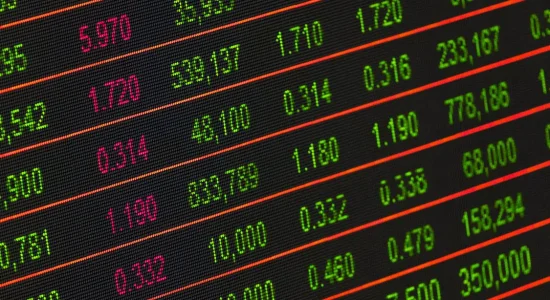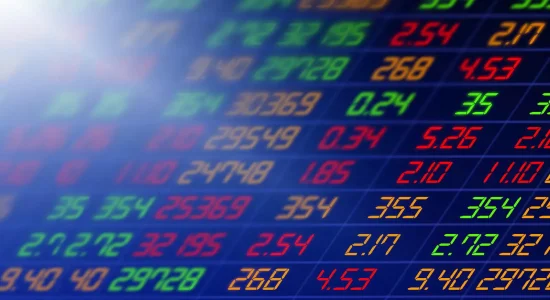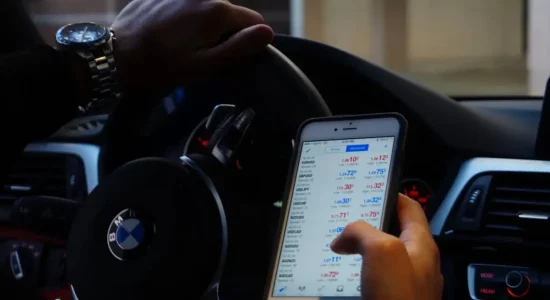The forex market is one of the most widely traded, with turnovers reaching $5 trillion daily. However, the percentage of successful traders still hovers around 2-10%, depending on where you look. So, why is forex trading such a tough nut to crack?
Here are nine reasons why forex trading is so hard:
- Overtrading is easy.
- Low entry barrier encourages premature entrance.
- Many traders are undercapitalized.
- Forex trading challenges your mental strength.
- There are too many (unqualified) teachers.
- There are too many scammers in the industry.
- Buy and hold rarely works in the forex market.
- There are too many dubious brokers.
- Forex trading tests your patience.
In the rest of this article, I’ll take a closer look at each of these points. By the end of the read, you should be able to draw your own conclusions regarding the best way to navigate the forex market, which will help you join the league of successful traders.
1. Overtrading Is Easy
In conventional markets, you have to wait until a customer or client pops in to make an inquiry and hopefully complete a purchase. In forex trading, you have access to the market 24 hours a day, five days a week—seven if you trade synthetic assets.
That means you can open as many positions as you want. I have seen people take up to 200 trades a day, trying to make as much money as possible quickly. Unfortunately, overtrading in such a volatile market is a recipe for disaster.
Successful traders are more meticulous about the trades they take. The day traders amongst them stick to a daily profit or loss target. They stop trading immediately after meeting any of those goals. The temptation to chase every micro-movement in the market is one of the reasons many people fail.
2. Low Entry Barrier Encourages Premature Entrance
Anywhere you look, there are blogs and YouTube channels promising to teach you everything you need to know about forex trading in a few hours. Many wannabe-traders breeze through some of these courses quickly. Then, with the dollar sign flashing in their eyes, they jump to open an account with the first broker they can find.
Of course, many brokers no longer have entry barriers in a competitive industry like this. You can fund an account and start trading in less than 20 minutes if you have a government-issued ID. As a result, forex is hard for many people because they enter the market unprepared.
Success at forex trading goes beyond learning a few acronyms and deploying to pointy arrow indicators. You need to practice extensively on a demo account and replicate your trading rules until they become second nature. Using a demo account also ensures you fully understand your chosen trading platform and are able to prevent costly mistakes.
3. Many Traders Are Undercapitalized
Retail forex traders often have highly ambitious dreams about how much money they can make from the market. However, only a few have enough capital to make their desired sums without taking on too high of a risk. Trying to make too much money on very little capital often ends in a margin call.
A quick search on popular forex forums will show you numerous attempts to turn $100 to $100,000 or other similar “projects.” However, they all have one thing in common: failure to reach the goal. The trader often leaves the thread barely a few weeks into the project.
Professional traders have high six or seven-digit accounts and target modest returns taking minimal risk. This could mean making back 20-50% a year. For the average trader with an account smaller than $5,000, 20-50% isn’t enticing. For a professional managing >$100,000, that’s a magnificent return, even before you factor in compounding.
So, the average forex trader will keep dreaming about making 5,000% returns on their meager capital and burn through multiple four-digit account balances before they either give up or adapt.
I always recommend trading every account like a retirement plan. If you have a strategy that can yield 30-100% returns and maximum drawdown below 20% while taking less than 1% risk per trade, you don’t need to risk 10% per trade chasing 1000% or more returns. That return makes you better than most beginner forex traders. A consistent 20% per year is more return than you’ll get from any bank or buying the S&P 500.
Don’t quit your job hoping to become a millionaire off trading BEFORE you are actually a millionaire trader. Save more money to increase your trading capital while maintaining a conservative strategy.
4. Forex Trading Challenges Your Mental Strength
Greed, fear, and discipline are words you’ll frequently see when researching how to become a better trader—and for a good reason. Forex trading stretches the limits of your mental toughness.
It’s easy to read all the theories and ideas on becoming a better trader. However, when sitting in front of your computer, it all flies off the window once the adrenaline kicks in. You find traders taking too many positions, increasing trade size arbitrarily, and trying to take revenge on the market.
The best traders know how to keep their emotions in check. They are indifferent after losing or winning a position. They don’t bite their fingernails while hoping and praying for a position to go their way. They enter the market with a clear entry and exit strategy while practicing astute risk management.
If you can feel the adrenaline after entering a position, you’re almost always risking too much on that trade. The excitement that comes from chasing high-risk positions is why forex trading is addictive to some people. Like other forms of addiction, it only ends badly in the long run.
Unfortunately, not many people have mastered the act of staying rational and disciplined in the face of possible profits or losses. Hence, forex trading will remain difficult for the majority of the population.
5. There Are Too Many (Unqualified) Teachers
With forex trading being so tough to conquer, many struggling or failed traders make more money teaching people. Unfortunately, only a few of them teach useful and practical techniques. Others repackage simple concepts and make it unnecessarily difficult to hoodwink unsuspecting newbies into parting with the training fee.
Additionally, many of these so-called mentors teach conflicting stuff. I see many of them on forex trading forums parroting what they believe is the best approach to trading. You can find multiple trade calls in different directions on one asset. Without any universal rules, it’s hard for newcomers to know what works and what doesn’t without first losing a lot of money.
One of the first things I tell newcomers about forex trading is to learn the basics, create your own strategy, and stay disciplined. During the strategy creation phase, only pick two or three experienced and verified profitable traders to learn from. Once the strategy is in place, shut your ears to the noise.
6. There Are Too Many Scammers in the Industry
Similar to the point above, forex trading is hard because there aren’t too many people you can trust. You can find many adverts offering you a 100% accuracy system for a few hundred dollars. However, the vast majority of them are snake oil merchants selling dreams. Some only care about luring you to their affiliate link or getting impressions for adverts on their blog.
Unfortunately, there’s no way to know who is genuine and who isn’t. In the past, looking through an independently verifiable trade history was enough to weed out scammers. However, high-level scammers can doctor trade reports and statements by working with dubious brokers.
The regulators in the US, UK, and EU occasionally arrest and prosecute scammers, but usually after they have already defrauded people of millions of dollars. Scammers outside these regions tend to get away with their crimes.
As a newbie in the industry looking to succeed, you must be ready to put in the work to create your own trading strategy. Nobody sells the goose that lays the golden eggs.
If someone is selling you a magical system that promises to make you a millionaire in a year in exchange of a few hundred or thousands, your alarm bells should start ringing. Similarly, if you find anyone promising to generate returns for you if you allow them to trade for you, be sure to verify their trading history. Nine times out of ten, you will lose that money.
7. Buy and Hold Rarely Works in the Forex Market
In the stock or crypto market (to a lesser extent), many people encourage buy-and-hold strategies because the market tends to continue moving up even after a downturn. If you bought an S&P 500 ETF 20 years ago with $100,000, you’d currently have more than $550,000 (450%) now without lifting a finger to manage the position. Even accounting for inflation, that’s a handsome return.
Such buy-and-hold trading is harder to replicate in the ever-fluid forex market. For example, if you bought the GBPUSD at the same time as my S&P example above, your $100,000 will be worth less than $72,000 today (-28%).
Here’s a table showing how much return you’d have after 20 years with a buy and a hold strategy on some of the other most popularly traded assets in forex.
| Asset | Return |
| EURUSD | 96% |
| USDJPY | 20% |
| AUDUSD | 13% |
| NZDUSD | 17% |
| CHFJPY | 70% |
| EURJPY | 32% |
| GBPJPY | -9% |
| EURGBP | 23% |
| XAUUSD (GOLD) | 154% |
The table above shows how buy-and-hold doesn’t work quite as well in the forex market. Unless you bought the EURUSD or Gold, commissions and swaps would have eroded the bulk of your profits over that 20-year holding period. Spreading out the risk across all the selected pairs doesn’t help much either.
The forex market doesn’t move upwards overall. It swings up and down widely, sometimes too fast. Knowing when to buy and sell is the only way to make consistent profits. Unfortunately, even the best strategies don’t predict these movements correctly all the time. Professional traders try to make more money when they are right than they lose when they are wrong.
The forex market would be easier if people could buy an asset and come back to check the performance in five to ten years, almost sure of a significant profit.
8. There Are Too Many Dubious Brokers
After you’ve managed to secure a profitable trading strategy, it’s easy to still end up on the losing side if you open an account with an unscrupulous forex broker. Some of them implement strategies that make trading more difficult.
For example, some brokers charge extortionate spreads, which may reduce the profitability of scalping strategies. Others frustrate trade entries during periods of high volatility by rejecting orders or accepting them with huge slippages.
Worse still, some brokers make withdrawing any profits almost impossible by hiding withdrawal clauses you’ll only notice when it’s too late.
Fortunately, it’s easy to weed out criminal brokers. A good tip is to only choose brokers that have been around for at least ten years. It’s also in your best interest to only choose brokers regulated in your jurisdiction where possible. That way, you can ensure that the broker will always adhere to regulatory standards. When any disputes arise, you can seek redress in court.
9. Forex Trading Tests Your Patience
Many people go into forex trading, intending to make money quickly. As a result, they find it difficult to wait for trades to develop. Closing profitable or losing positions too early is one of the first signs of trading without a strategy.
Professional traders stay patient, waiting for a trade to reach their predetermined profit levels or loss limits. If you find yourself anxious to book profits to exit a losing trade, there’s a high chance you’re risking too much money on the position.
Expecting to close trades in profit within a specific timeframe is unrealistic in forex trading. Your trade may reach your profit target in an hour or six. For swing traders, it may stretch out to a week or more. Real traders remain patient and allow the market to play out.







